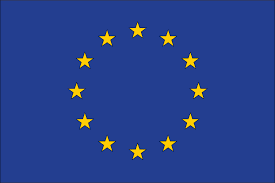Chemycal has been acquired by 3E
Learn MoreChemycal has been acquired by 3E
Learn MoreDiscover how Chemycal PRO helps you boosting your regulatory monitoring:

The European Union has proposed new amendments to Annex I of Regulation (EU) No 10/2011 (proposal and annex), which lays down specific rules for plastic materials and articles intended to come into contact with food. The proposed changes are based on recent scientific opinions from the European Food Safety Authority (EFSA) on new substances that may be used in food contact materials, as well as on the use of already authorized substances. The proposal aims to ensure that the regulation takes into account recent scientific and technical progress and to remove any doubts about its correct application.
One of the key changes proposed by the amendment is the inclusion of new rules for a group of substances known as ‘phthalates’. These substances, namely FCM No 157 (DBP), FCM No 159 (BBP), FCM No 283 (DEHP), FCM No 728 (DINP), and FCM No 729 (DIDP) are currently authorized as additives for use as plasticizers and technical support agents in plastic FCM, subject to specific restrictions of use and migration limits. The proposed changes are based on an opinion by the European Chemicals Agency (ECHA) on restriction proposals for some of these phthalates and an opinion of the European Food Safety Authority (EFSA) on 18 September 2019, which confirmed the individual Tolerable Daily Intake (TDIs) set out in its 2005 opinions for all five phthalates but only on a temporary basis (t-TDI) because of a number of limitations and uncertainties related to the assessment, which should be addressed in the future.
The proposed amendments also include the revocation of authorisation of the substances ‘wood flour and fibers, untreated’ (FCM No 96) and salicylic acid (FCM No 121) because it cannot be established that those authorisations, as they currently stand, are in accordance with Regulation (EU) No 1935/2004. To ensure a smooth transition, the EU has proposed that these substances are allowed to be placed on the market provided an application for authorisation of those specific uses is submitted within a proportionate period after the entry into force of this Regulation.
The proposed changes also include the re-evaluation of 284 substances in Annex I to Regulation (EU) No 10/2011 to determine whether a specific migration limit is required, as well as the revocation of Salicylic acid.
The EU has also proposed transitional measures for products already on the market, provisions for the continued use of certain substances and materials under certain conditions, and provisions for the submission and consideration of applications for the authorization of such substances and materials. The amendment to Annex I includes changes to substance authorizations and the addition of new substances, specifically the amendment of entries 96, 121, 157, 159, 283, 728, 793, and 822 in Table 1 of point 1 in Annex I.
In addition, the EU has authorized the use of the substance diethyl[[3,5-bis(1,1-dimethylethyl)-4-hydroxyphenyl]methyl] phosphonate (FCM No 1007) in the polymerization process to manufacture poly(ethylene terephthalate) (PET) up to 0.2% (w/w) based on the final polymer weight, and an application for the extension of use of this substance in the polymerization process to manufacture poly(ethylene 2,5-furandicarboxylate) (PEF) has been adopted at 0.1% w/w based on the final polymer weight.
The proposed amendments are open for public consultation until [date], after which the EU will consider any feedback received before finalizing the changes.
2013 © MyChemicalMonitoring. ALL Rights Reserved. About Us | Terms and Conditions